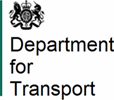
16 Mar 2021
Jet Zero takes off with £15m competition to reduce aviation emissions with fuel made from household waste
- £15 million “Green Fuels, Green Skies” competition launches to turn materials such as everyday wastes into sustainable aviation fuel
- New CEOattends second Jet Zero Council meeting to help drive progress on decarbonisation
- £2.4 million awarded to pioneering project electrifying regional links in the South West
Net zero emission aviation is one step closer today following the launch of a new competition to support the development of cutting-edge facilities capable of turning everyday waste into jet fuel.
The “Green Fuel, Green Skies” competition, which is part of the Prime Minister’s Ten Point Plan, will support UK companies as they pioneer new technologies to convert household rubbish, waste wood, flue gases and even excess electricity into sustainable aviation fuel.
Offering emissions savings of over 70% compared to conventional jet fuel, these trailblazing projects will help put flying onto a more sustainable path while helping to create up to 11,500 jobs over the coming decades.
Companies will be able to bid for a share of £15 million to kick start the development of first-of-a-kind production plants in the UK to produce these fuels at scale.
This comes as the Government’s second Jet Zero Council meeting is attended by new CEO Emma Gilthorpe, Chief Operating Officer at Heathrow. Promoting the vision of the group, Emma will increase its reach with key stakeholders across the sector helping drive forward decarbonisation of aviation.
Joining the distinguished roster of industry and environmental experts, new additions from the RAF and Civil Aviation Authority will bring a breadth of knowledge and experience to the Council, energising the charge to reduce emissions and deliver clean growth in the sector.
Transport Secretary, Grant Shapps said:
“As the aviation sector emerges out of the pandemic and looks towards recovery over the coming months, we must put our environmental commitments at the centre of everything we do – so not only do we build back better, we also build back greener.
“That’s why we’re stepping up our work on the Council, recruiting new members and launching pioneering efforts to ensure that we continue to lead the world by example and deliver on our ambitious net zero targets.”
Business Secretary Kwasi Kwarteng said:
“Today’s meeting of the Jet Zero Council demonstrates the vital collaboration between government and industry that will make zero-emission flights a reality.
“Britain’s aerospace sector is at the centre of our plans to build back greener from the pandemic. We are committed to supporting its recovery and investing in green tech to take us closer to zero carbon take off.”
Through the Future Flight Challenge, the Government has committed £125 million of funding over 4 years matched by £175m from industry to develop greener ways to fly, such as all-electric aircraft and deliveries by drone, by advancing electric and autonomous flight technologies. Just this week, Project 2ZERO announced plans to use their share of £2.4 million through this fund to demonstrate flights of six and nineteen seat hybrid-electric planes.
The project will demonstrate the use of electric and hybrid aircraft on regional routes showing the potential to decarbonise aviation whilst supporting regional connectivity.
The Government has put in place one of the most comprehensive packages of business support in the world pledging around £7bn to the aviation sector since the start of the pandemic.
Contact Information
Hayley Allen
hayley.allen@dft.gov.uk
Notes to editors
- Sustainable Aviation Fuels (SAF) can reduce carbon emissions by over 70% when compared to a fossil fuel equivalent on a lifecycle basis.
- UK Government support for SAF is subject to strict sustainability requirements, to ensure SAF deliver significant emissions savings and to prevent negative environmental consequences such as the loss of biodiversity, deforestation and clearance of land with high carbon stock during production.
- The Ten-Point Plan for a Green Industrial Revolution sets out the approach government will take to build back better, support green jobs, and accelerate our path to net zero.
- Formed last year, the Jet Zero Council (JZC) brings together a multitude of leaders from aviation, tech, non-governmental organisation, investor groups and government providing leadership and guidance to deliver our world leading climate goals and make zero-emission aviation a reality within a generation.
- Read about the work of the Council here: https://www.gov.uk/government/groups/jet-zero-council
- The JZC has also established a SAF Delivery Group to provide advice on how government and industry can work together to establish UK production facilities and accelerate the delivery of SAF to market.
- Work to deliver zero emission aircraft is led by the Aerospace Technology Institute (ATI), who develop the UK’s aerospace technology strategy - ‘Accelerating Ambition’ . The strategy’s objective is to maintain UK competitive advantage in aerospace manufacturing as the sector accelerates environmental performance of aircraft, whilst developing transformative green technologies. An early focus is the ATI’s FlyZero Project – an in-depth study into the potential for a zero-emission aircraft by 2030, which will set out detailed plans for how the UK aerospace sector might best contribute to zero-emission aircraft.
